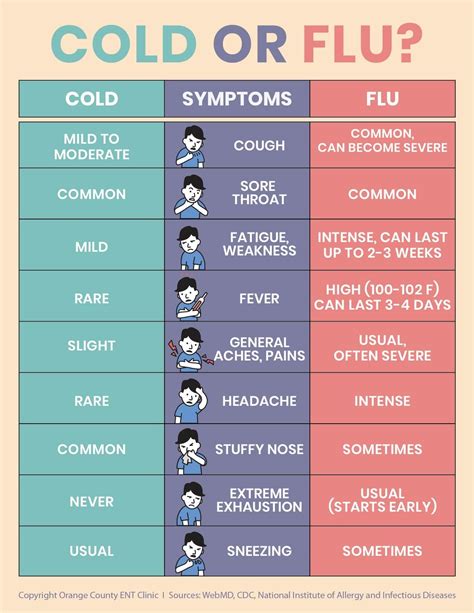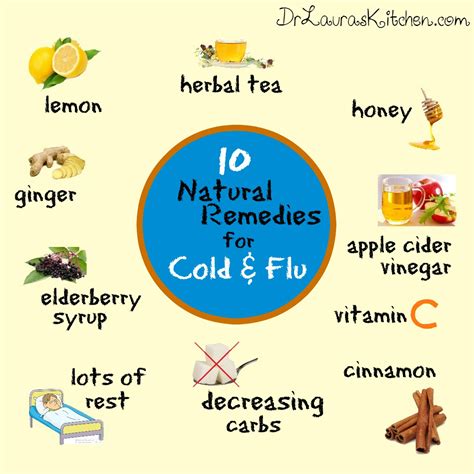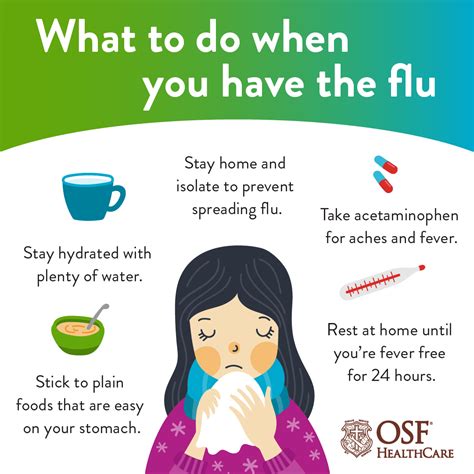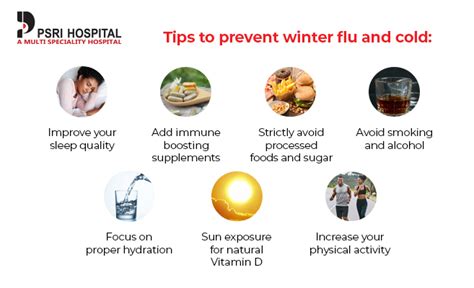Intro
Understand bad cold symptoms, including congestion, cough, and fatigue. Learn about causes, treatments, and relief for respiratory issues, sinus pressure, and flu-like symptoms.
The common cold is one of the most prevalent illnesses worldwide, affecting millions of people every year. It's a viral infection that targets the upper respiratory system, causing a range of uncomfortable symptoms. When you're suffering from a bad cold, it can be challenging to go about your daily routine, and the symptoms can be debilitating. Understanding the causes and effects of a bad cold can help you navigate the recovery process and find relief from the symptoms.
A bad cold can be caused by various factors, including environmental changes, a weakened immune system, and exposure to viruses. The most common culprits behind the common cold are rhinoviruses, coronaviruses, and adenoviruses. These viruses can spread through the air when an infected person talks, coughs, or sneezes, or by touching contaminated surfaces. Once you're infected, the virus multiplies in your body, triggering an immune response that leads to the characteristic symptoms of a cold.
The symptoms of a bad cold can vary from person to person, but they often include a runny nose, congestion, sneezing, coughing, and a sore throat. In some cases, a cold can also lead to fatigue, headaches, and a general feeling of being unwell. The severity of the symptoms can depend on the type of virus, your overall health, and the effectiveness of your immune system. When you're experiencing a bad cold, it's essential to understand the underlying causes and take steps to manage the symptoms and support your recovery.
Understanding the Symptoms of a Bad Cold

When you're suffering from a bad cold, it's crucial to recognize the symptoms and take action to alleviate them. The most common symptoms of a cold include:
- A runny nose, which can be clear, yellow, or green
- Congestion, which can make it difficult to breathe through your nose
- Sneezing, which can be frequent and explosive
- Coughing, which can be dry or productive
- A sore throat, which can be painful and irritated
- Fatigue, which can make you feel weak and lethargic
- Headaches, which can be mild or severe
- A general feeling of being unwell, which can make it challenging to perform daily tasks
Causes of a Bad Cold
The causes of a bad cold can be complex and multifaceted. Some of the most common factors that contribute to the development of a cold include: * Viral infections, which can be spread through the air or by touching contaminated surfaces * Environmental changes, such as cold weather or dry air * A weakened immune system, which can make you more susceptible to illness * Poor hygiene, which can increase the risk of transmission * Close contact with someone who's infected, which can spread the virusHow to Manage the Symptoms of a Bad Cold

When you're experiencing a bad cold, there are several steps you can take to manage the symptoms and support your recovery. Some of the most effective ways to alleviate cold symptoms include:
- Staying hydrated by drinking plenty of fluids, such as water, tea, or soup
- Using a humidifier to add moisture to the air and relieve congestion
- Taking over-the-counter medications, such as pain relievers or decongestants
- Practicing good hygiene, such as washing your hands frequently and avoiding close contact with others
- Getting plenty of rest and avoiding strenuous activities
- Using a saline nasal spray or drops to help loosen mucus and reduce congestion
Natural Remedies for a Bad Cold
In addition to over-the-counter medications, there are several natural remedies that can help alleviate the symptoms of a bad cold. Some of the most effective natural remedies include: * Honey, which can help soothe a sore throat and calm a cough * Ginger, which can help reduce inflammation and alleviate nausea * Echinacea, which can help boost the immune system and reduce the severity of cold symptoms * Chicken soup, which can help ease congestion and provide essential nutrients * Steam inhalation, which can help loosen mucus and reduce congestionThe Importance of Rest and Hydration

When you're suffering from a bad cold, it's essential to prioritize rest and hydration. Getting plenty of rest can help your body recover from the infection and reduce the severity of the symptoms. Staying hydrated can help thin out mucus, making it easier to expel, and keep your respiratory system functioning properly. Some of the best ways to stay hydrated include:
- Drinking plenty of water throughout the day
- Consuming clear broths or soups
- Eating foods with high water content, such as fruits or vegetables
- Avoiding caffeinated or carbonated beverages, which can dehydrate you further
Complications of a Bad Cold
In some cases, a bad cold can lead to complications, such as: * Sinus infections, which can cause pain and pressure in the face and head * Bronchitis, which can cause inflammation and infection in the airways * Pneumonia, which can cause infection and inflammation in the lungs * Ear infections, which can cause pain and discomfort in the ears * Asthma exacerbations, which can cause wheezing, coughing, and shortness of breathPreventing the Spread of a Bad Cold

When you're suffering from a bad cold, it's essential to take steps to prevent the spread of the infection. Some of the most effective ways to prevent the spread of a cold include:
- Washing your hands frequently with soap and water
- Avoiding close contact with others, such as hugging or shaking hands
- Covering your mouth and nose with a tissue or your elbow when coughing or sneezing
- Avoiding sharing utensils, glasses, or other personal items
- Cleaning and disinfecting surfaces and objects that may be contaminated with the virus
When to Seek Medical Attention
While most colds can be managed with self-care and over-the-counter medications, there are times when it's essential to seek medical attention. Some of the signs that you may need to see a doctor include: * A high fever that lasts for more than three days * Difficulty breathing or shortness of breath * Chest pain or pressure * Severe headache or facial pain * A cough that produces yellow or green mucus * A sore throat that's severe or lasts for more than two daysConclusion and Next Steps

When you're suffering from a bad cold, it's essential to take steps to manage the symptoms and support your recovery. By understanding the causes and effects of a cold, you can take action to alleviate the symptoms and prevent complications. Remember to prioritize rest and hydration, practice good hygiene, and seek medical attention if you experience any severe or persistent symptoms. With the right approach, you can recover from a bad cold and get back to your normal routine.
What are the most common symptoms of a bad cold?
+The most common symptoms of a bad cold include a runny nose, congestion, sneezing, coughing, and a sore throat. In some cases, a cold can also lead to fatigue, headaches, and a general feeling of being unwell.
How can I manage the symptoms of a bad cold?
+Some of the most effective ways to manage the symptoms of a bad cold include staying hydrated, using a humidifier, taking over-the-counter medications, practicing good hygiene, and getting plenty of rest.
Can a bad cold lead to complications?
+In some cases, a bad cold can lead to complications, such as sinus infections, bronchitis, pneumonia, ear infections, and asthma exacerbations. If you experience any severe or persistent symptoms, it's essential to seek medical attention.
We hope this article has provided you with a comprehensive understanding of bad cold symptoms and how to manage them. If you have any further questions or concerns, please don't hesitate to comment below. Share this article with your friends and family to help them stay informed and healthy during the cold season. Remember to prioritize your health and take steps to prevent the spread of illness. By working together, we can create a healthier and happier community.
